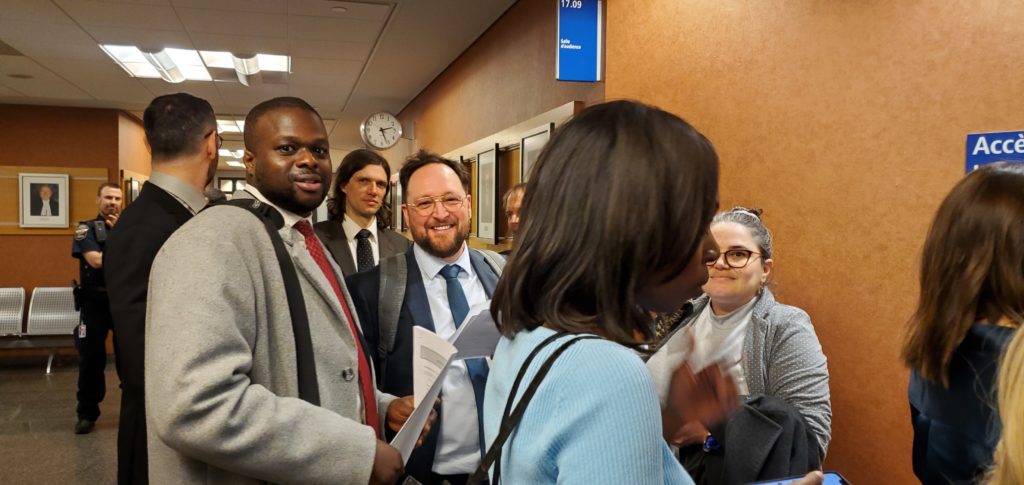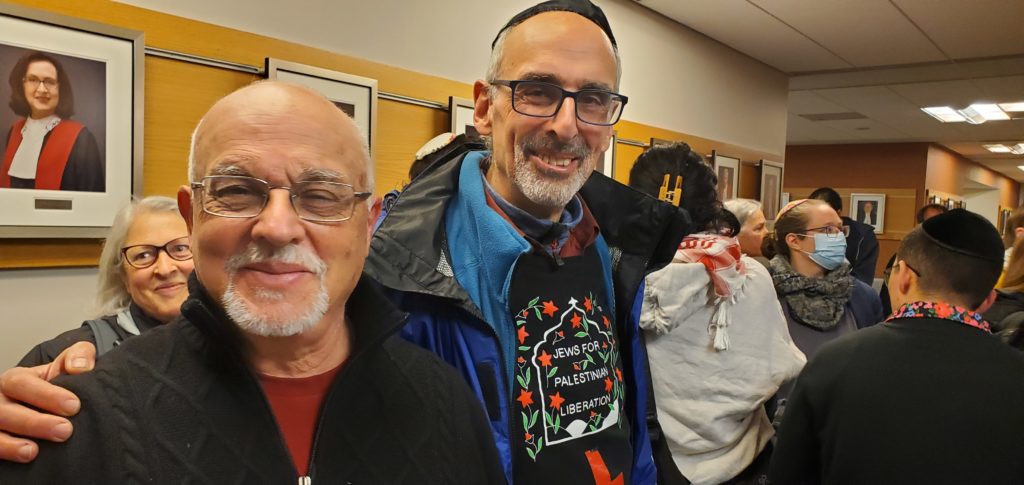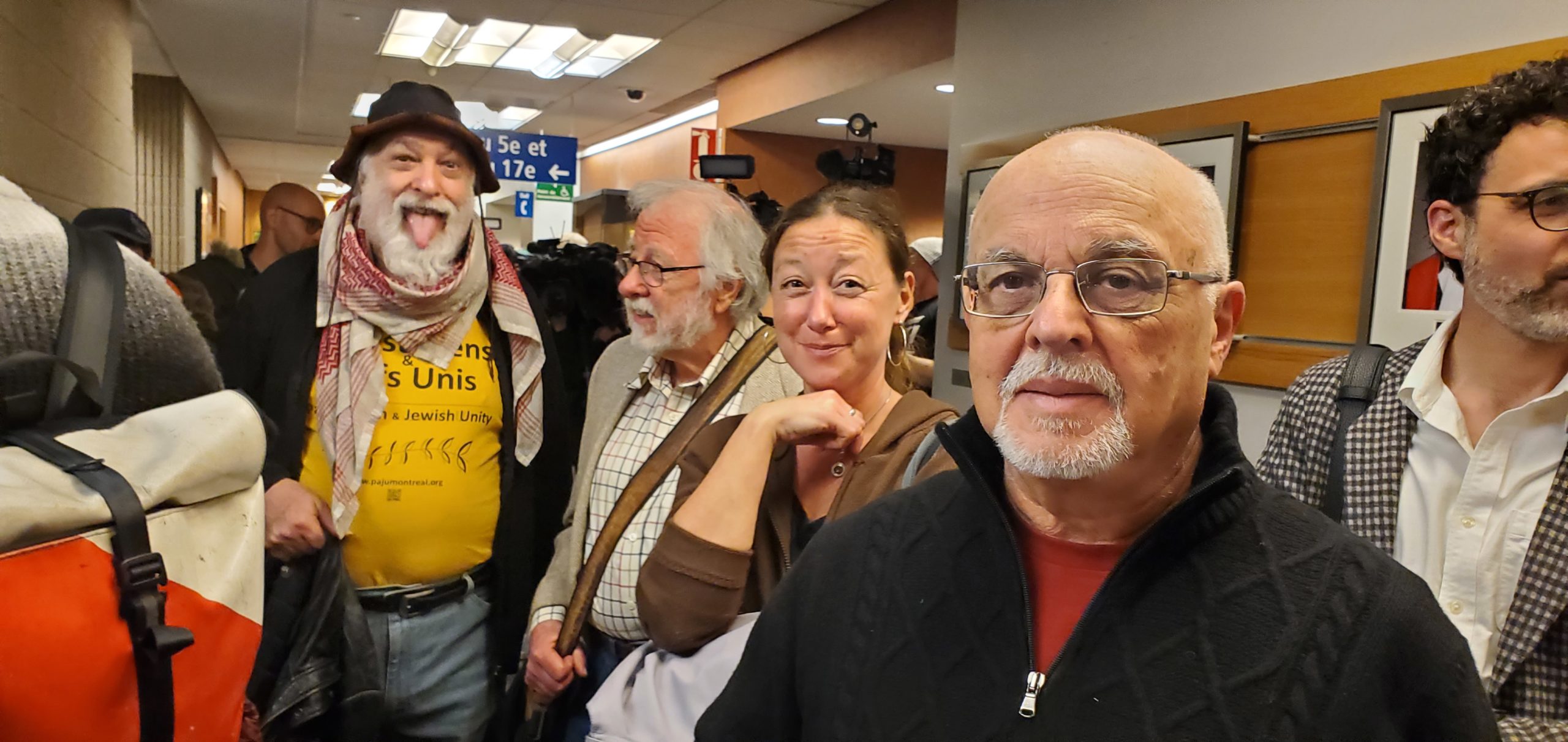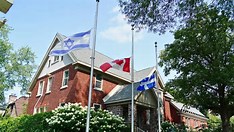“The request for an injunction is rejected for lack of demonstrating that there is an emergency,” we can read in the decision of judge Chantal Massé, rendered this Wednesday at the Montreal courthouse.
The judgment also indicates: “As for the order aimed at banning demonstrations, more than 100 meters from the entrances and exits of 154 buildings, the Court is of the opinion that the balance of inconvenience leans towards the demonstrators whose freedom of expression and peaceful assembly would be significantly affected while the harm demonstrated by the plaintiffs in failing to obtain such an order is rather limited, relating more to subjective fears and discomfort than to precise and serious fears for their safety.”

Bruce Katz, co-president of Palestinians and Jewish Unity (PAJU) welcomes this decision and says it is destructive and dangerous to use anti-Semitism as a weapon to silence debate and opposition to genocide. According to him, this amalgam is dangerous both for the Palestinian community as well as for the Jewish community as a whole.
“Protest spaces like the camp at McGill are essential spaces for awareness-raising and popular education around social issues, not only for the student population but also for citizens. It is essential to defend it and show our solidarity,” says Bruce Katz.

This small victory demonstrates that students, who are exercising their right to peacefully protest despite an overwhelming atmosphere of pressure, intimidation and retaliation, to raise awareness of the Israeli attack on Gaza – with the support of Canada in the form of weapons and financing, are on the right track.
Palestinian and Jewish Unity (PAJU) appeared at the hearing to defend the right to demonstrate as well as to insist to the Court that criticizing the genocidal policies of the Israeli regime does not constitute anti-Semitism but rather is the duty of people of conscience working to end all forms of racism, chauvinism, especially when genocide is being committed.








